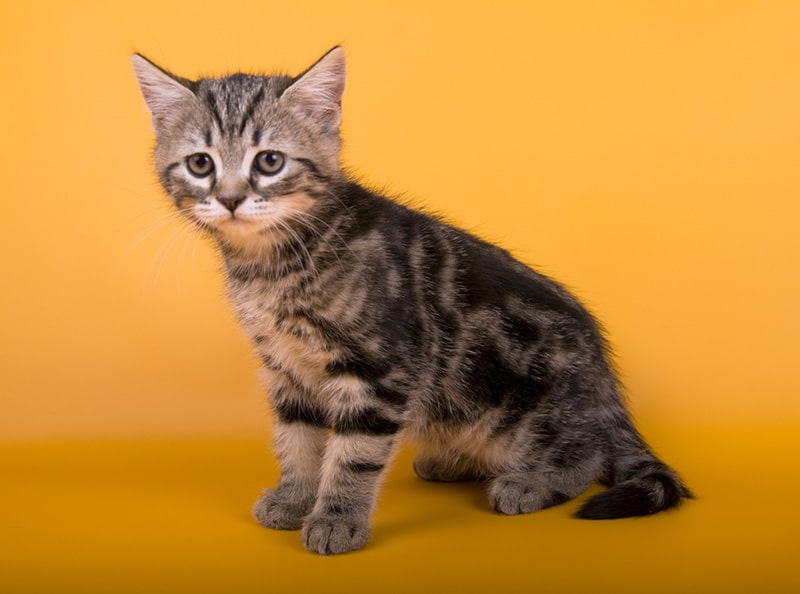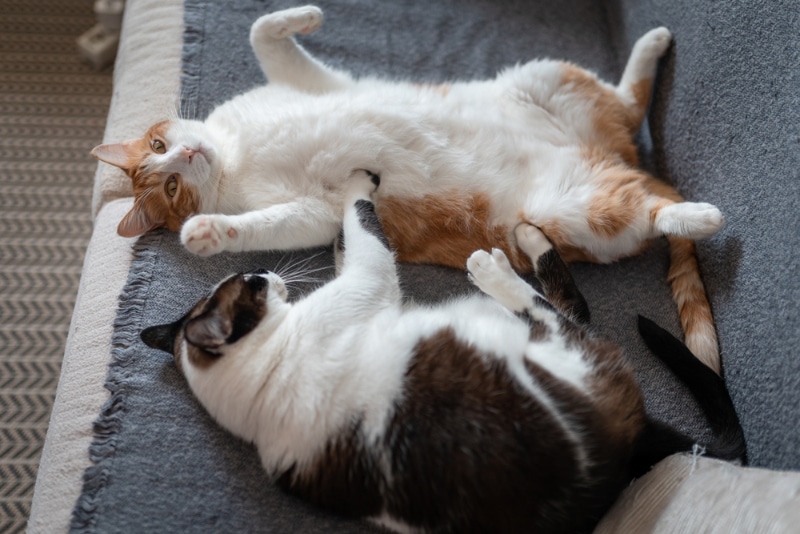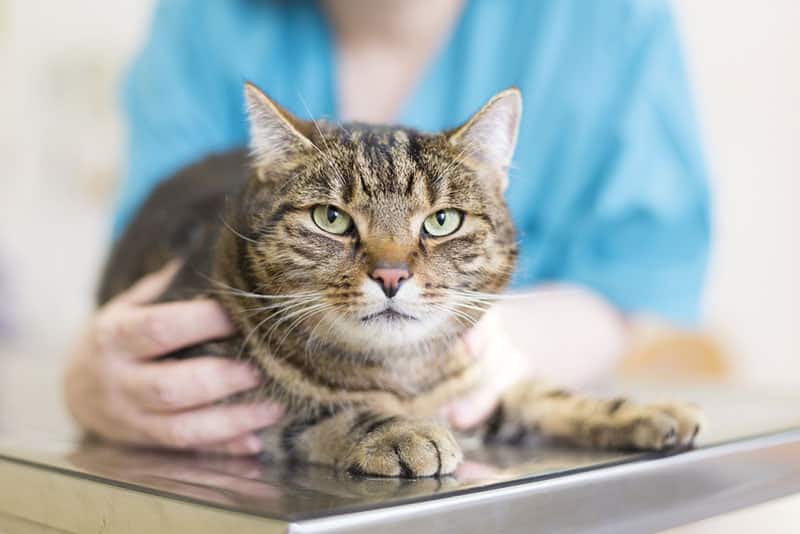Most kittens get adopted before they are six months old, meaning that you get to experience the part of a kitten’s life in which they are 7 to 12 months of age. This is the stage where kittens are self-sufficient but not yet adults. What can you expect during this time frame? At this age, kittens are still small and cute, very active, and beginning to learn how to act like regular adults.
This brief guide will cover everything you need to know about what to expect with a kitten that is 7 to 12 months old, including what they eat, how big they are, when they stop growing, and typical behaviors.
What to Expect With Your Kitten
Diet
At 7 months of age, your kitten will be eating solid foods and will be able to eat a regular diet similar to that of an adult cat. Your kitten can eat either solid dry food or wet food, depending on their preferences. You should feed kitten food at this age and continue to feed kitten food until at least 12 months old.
There are a couple of reasons that kittens between 7 and 12 months of age should be eating kitten food. First, your kitten is still growing and will benefit from the additional nutrients provided by kitten food. Second, the proportions on the bag (or can, or box) will be suited for a kitten rather than an adult cat. Proportion and serving size are important in order to get your kitten all of the calories and nutrients they need without overfeeding them.
| Food Type | Wet or dry (Solid) |
| Feedings Per Day | 2-3 |
| Serving Size | Follow the instructions on the bag or speak to your veterinarian |
You want to make sure that your kitten is eating regular meals without overeating. Their stomachs are still small, so feeding smaller meals more frequently may help ensure they get all the nutrients they need.
Health
Kittens can start taking medications like flea and tick prevention and heartworm prevention around 8 weeks of age. That means that you should have your cat on the appropriate medication for your geographic location and lifestyle. Your kitten should also be getting familiar with their regular veterinarian. They’ll likely have completed their kitten vaccinations, but don’t be afraid to set up a wellness check to make sure their growth and development are on the right track. This is also a good time to potentially get put on a wellness plan at your vet or buy pet insurance. Kittens are the cheapest to cover due to their age and overall health.
Your vet will let you know if your kitten is healthy and what to expect next from your growing cat. It is important to bring your kitten to the vet at least once during the time they are 7–12 months old in order to set them up for success in the future. Also during this time, if it hasn’t already been done, most cat owners start thinking about spaying and neutering their cats. Speak to your veterinarian if you have any questions about this procedure.
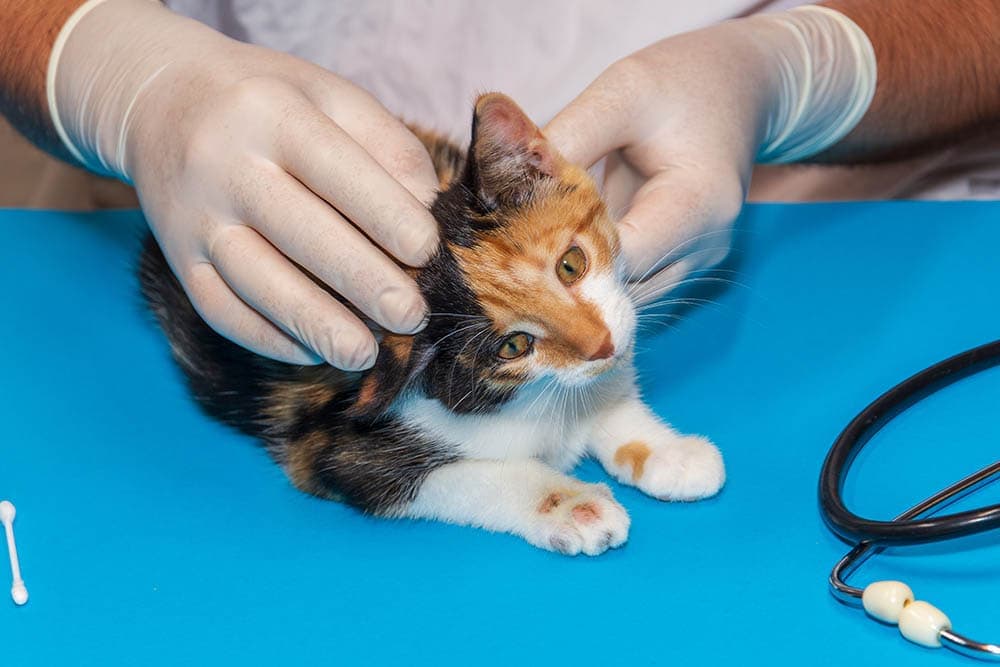
Size
Kittens aged 7 to 12 months old will typically weigh between 6 and 8 pounds. Kittens typically follow a growth pattern that sees their age in months correspond to their weight up to around 7 months of age. After 7 months, kittens will start to settle into their adolescent bodies, and growth and development will vary from cat to cat.
For example, if you have a particularly small cat, they will grow slower and stop growing sooner than a large breed cat. Around 7 months is when your kitten is going to start developing into their adult body by filling out their frame and finalizing its height. By 12 months of age, your kitten will weigh roughly the amount that they are going to as an adult, or a little less, and will likely be at their final length and height.
Cats’ baby teeth fall out between 3 and 4 months of age and adult teeth come in soon after. So, by 7 months old, they should have all of their adult teeth. Their eyes should be their final color. Their ears will be upright. They will have full motion and energy to engage in typical cat behaviors.
Activity Level
Kittens 7 to 12 months old will have very high levels of activity. But kittens will not be continuously active. They will play hard for short periods of time and then rest. Kittens can be very playful. Activity will be high-paced and frenetic. Your kitten might get the zoomies or the rips where they run around and get out a ton of excess energy all at once.
In between play, your kitten will likely explore the world, lay in the sun, eat, interact with people and other cats if they are around, and sleep for hours at a time. Kittens will be more active and more energetic than adult cats, but they can also sleep for longer periods than adult cats.
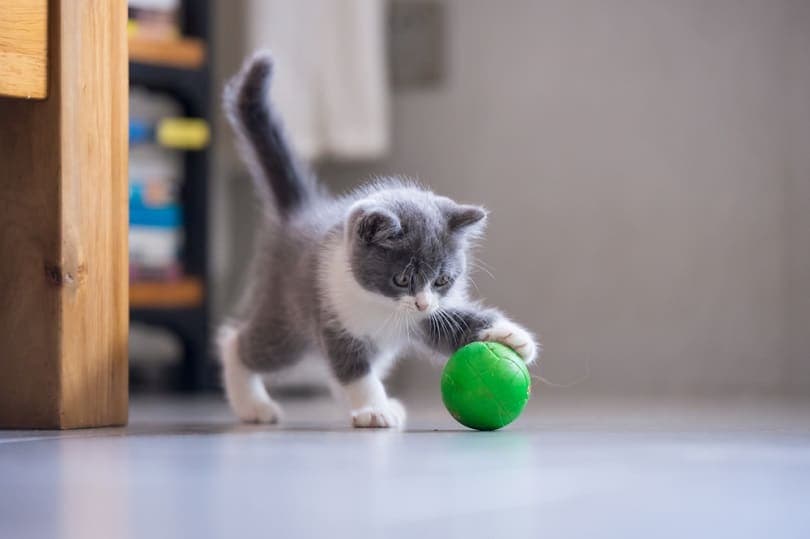
Typical Behaviors
This age is defined by play, high bursts of energy, and general curiosity. Kittens of this age will typically be very playful. They will engage in play with one another, with their owners, or with regular household objects. Your kitten might pounce on your shoes sitting by the door or bat at the bottom of a curtain. Kittens can also be very vocal at this age. They may not cry anymore like they did when they were younger, but kittens aged 7 to 12 months can still meow more than adult cats.
Your kitten will continue to explore the world and learn how things work. They will be looking for patterns in how they are fed, how they are disciplined, and how you behave in certain situations. This will lead them to test their limits and engage in mild mischief.
Sleep Habits
Kittens will sleep a lot. Some kittens will sleep as much as 20 hours per day if they are growing or tired. It is not unusual for kittens to sleep between 16 and 18 hours per day, even at 7 months old. As your kitten gets a little older, closer to 12 months old, they may start to sleep slightly less. If your kitten is sleeping a lot, there is typically nothing to be worried about, especially if the rest of your kitten’s behaviors seem healthy and normal.
It is not unusual for kittens to engage in short, intense bursts of play and then sleep for 3 to 4 hours at a time. You may find your kitten running around one minute and then sleeping the next minute.
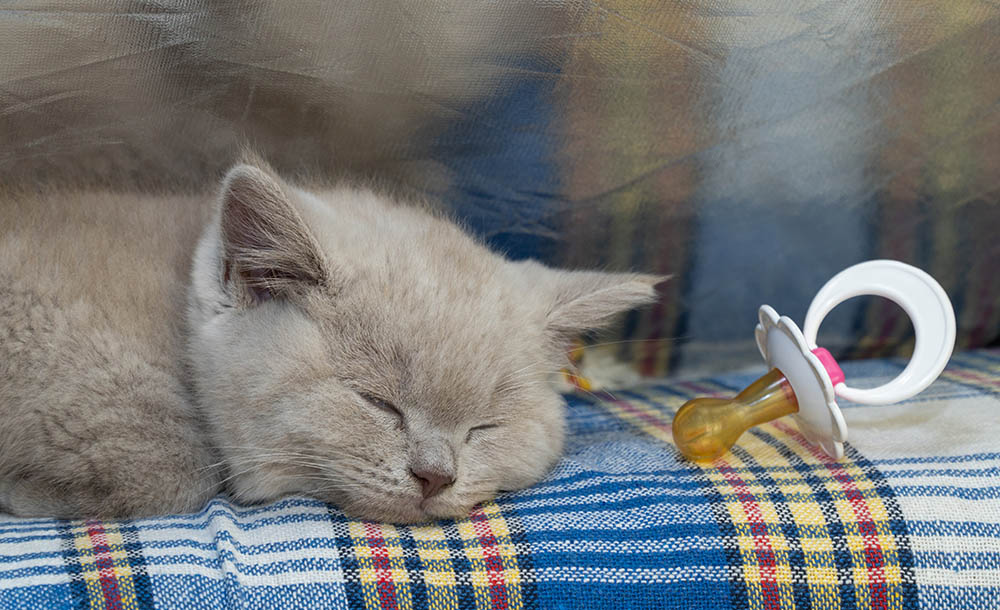
What Comes Next?
Once your kitten makes it through the 7-to-12-month phase, what comes next? The next phase for your kitten is adulthood. From 12 to 18 months, your kitten will stop growing and start to act more like an adult cat and less like a kitten. Your cat may calm down, play less, sleep less, and settle into a more regular routine. 12 months of age is considered the unofficial end of kittenhood for most breeds, and by 18 months, your cat will be considered an adult by most people.
Cats are considered to have four stages of life. Kitten is the first stage that your cat is in now. The other phases of life are early adulthood, mature adult (or mature cat), and senior.
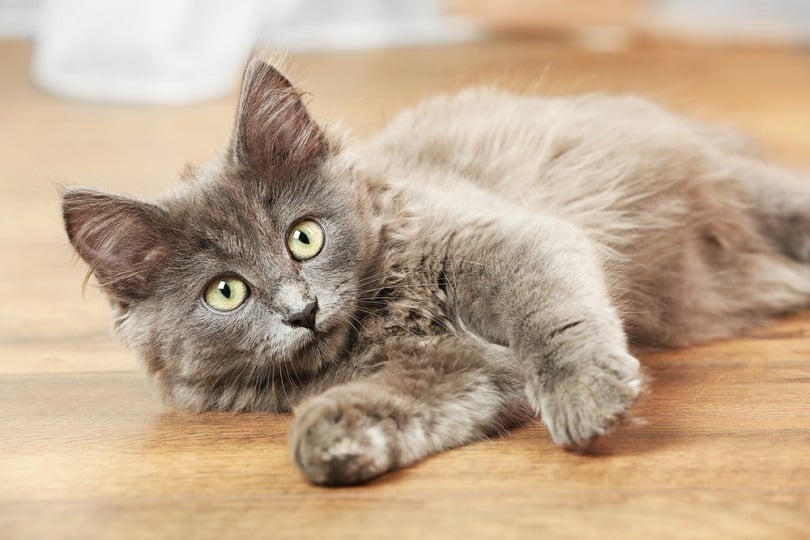
Stages of a Cat’s Life
| Stage | Age |
| Kitten | Birth – 1 Year |
| Young Adult / Early Adulthood | 1 – 6 Years |
| Mature Adult | 7 – 10 Years |
| Senior | 10+ Years |

Conclusion
This is by no means an exhaustive guide, and any questions or concerns should be raised with your veterinarian. Kittens at this age are a lot of fun, have a lot of energy, and can be both a joy and a handful. Make sure you bring them in for a check-up, feed them quality kitten food, and allow them to explore and learn to their heart’s content.
Featured Image Credit: OrangeGroup, Shutterstock

